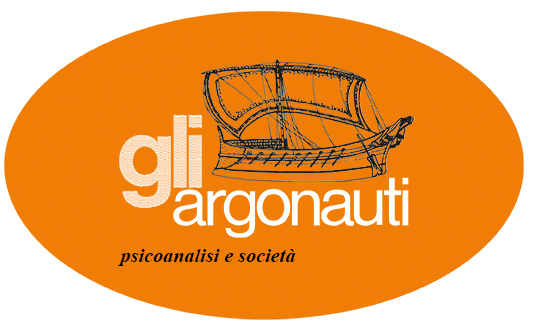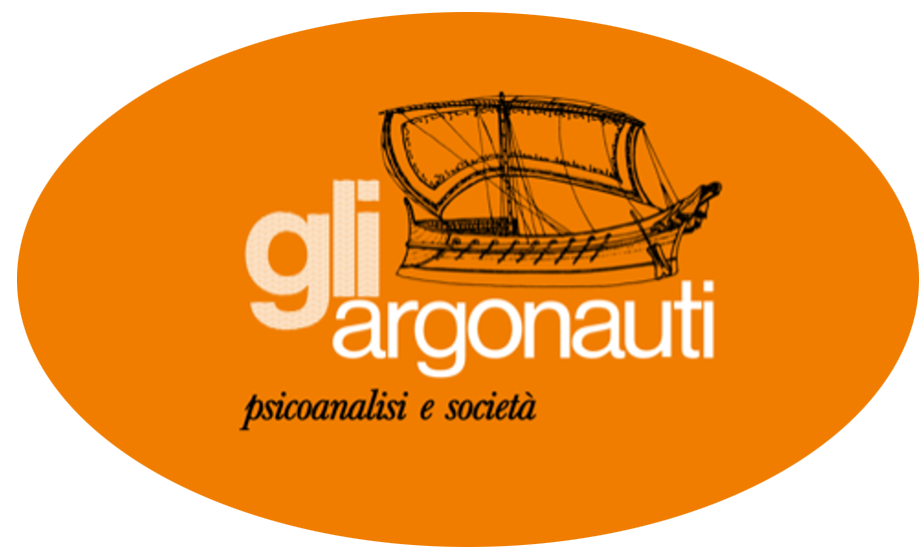
Instructions for Authors
INSTRUCTIONS FOR AUTHORS
Instructions for authors of articles to be submitted for publication in Gli Argonauti Psicoanalisi e Società should carefully follow the guidelines described in Italian on the web page “Norme Editoriali” [“Instructions for authors”], and send the “Modulo per la Privacy” [“Agreement”] signed by the author(s) (“Information on the processing of personal data” is attached to this Agreement); this Agreement can be scanned and sent by e-mail. Authors who do not read Italian should personally contact the reviewers’ coordinator: referees@argonauti.it
Below there are the instructions for authors in English concerning four important aspects: Conflict of Interest, Informed Consent, Statement of Human and Animal Rights, and Guidelines for the Choice of Keywords. These instructions follow the “Uniform Requirements for Manuscripts Submitted to Biomedical Journals” of the International Committee of Medical Journal Editors (ICMJE). The journal Gli Argonauti Psicoanalisi e Società respects and adopts the standards set by the Committee on Publication Ethics (COPE): see Code of Ethics and COPE’s “Core Practices” and “Ethical Guidelinesfor Peer Reviewers”.
CONFLICT OF INTEREST
The author(s) are requested to complete the ICMJE Form for Disclosure of Potential Conflicts of Interest. Conflict of interest exists when an author (or his/her institution), referee, or editor have financial or personal relationships that inappropriately influence (bias) their actions. The potential for conflict of interest can exist whether, or not, an individual believes that the relationship affects his or her scientific judgment. The editors’ duty is to handle in the best possible way any conflict of interest (for example with the peer review process based on double-blind referees’ review system), and authors are requested to sign a specific statement and to declare in the footnote of the first page of the article if s/he has conflicts of interest, and, in case, to specify in detail these conflicts. The journal Gli Argonauti Psicoanalisi e Società is anItalian journal totally independent; as its firm principle of ethics, Gli Argonauti Psicoanalisi e Società never publishes advertisements (despite the fact that they could be very lucrative), does not receive funding of any sort, and is totally autonomous from any public or private institution.
INFORMED CONSENT
The description of clinical material must be extremely careful, so that it is absolutely impossible to identify patients unless the information is essential for scientific purposes. For example, the following are items that should be changed or omitted: patients’ name or initials, cities’ or hospitals’ names, patients’ age and possibly patients’ sex, type of employment, family’s characteristics, etc. If identifying characteristics are altered to protect anonymity, authors should provide assurance that alterations do not distort scientific meaning and editors should so note. Patients have a right to privacy, and if there is any risk that their privacy could be infringed, informed consent for publication should be signed by the patient (or parent or guardian), and in such case the patient who is possibly identifiable must see the manuscript to be published. However, informed consent is not sufficient: it is necessary that the patient swears that he or she will never reveal to anybody that the clinical material refers to him or her (otherwise there is an indirect infringement of his or her privacy, and ultimately the responsibility for this infringement belongs to the author). When informed consent has been obtained, it should be indicated in the published article. Authors should identify individuals who provide writing assistance and disclose the funding source for this assistance.
STATEMENT OF HUMAN AND ANIMAL RIGHTS
When reporting experiments on human subjects, authors should indicate whether the procedures followed were in accordance with the ethical standards of the responsible committee on human experimentation (institutional and national) and with the Helsinki Declaration of 1975, as revised in 2000. If doubt exists whether the research was conducted in accordance with the Helsinki Declaration, authors must explain the rationale for their approach, and demonstrate that the institutional review body explicitly approved the doubtful aspects of the study.
When reporting experiments on animals, authors should be asked to indicate whether the institutional and national guide for the care and use of laboratory animals was followed. (From: International Committee of Medical Journal Editors [ICMJE], “Uniform Requirements for Manuscripts Submitted to Biomedical Journals“).
GUIDELINES FOR THE CHOICE OF KEYWORDS
Keywords of each article, whenever possible, should follow the guidelines of the Medical Subject Headings (MeSH) of the National Library of Medicine (NLM) of the United States National Institute of Health (NIH).


